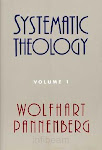1. Where Are We Now, and Why?2. “Enlightened” Europe3. Turning point: Nietzsche or Aristotle?4. Pagan vs. Christian Virtues5. After Virtue6. MacIntyre’s Answer3. Turning Point: Nietzsche or Aristotle?Chapter 9 marks the midpoint of
After Virtue, both as regards its scope and argument. “Nietzsche or Aristotle?” the author asks in the chapter’s title. Society is out of control. Who will lead the way?
The contemporary vision of the world is Weberian (following the father of sociology
Max Weber): plurality of values, with a bureaucratic and managerial outlook. Yet it is, as said, rationally unsustainable. (MacIntyre notes that, if all is will, the obvious rejoinder question is
whose will is it? He is thankful that in this book he needs not answer this sinister question.)
Nietzsche (1844-1900) is one of two genuine theoretical alternatives to analyze our culture, he says. Nietzsche understood clearly that appeals to objectivity were (in fact) expressions of will. He rejected the use of the words
good,
right, and
obligatory.
The most powerful pre-modern mode, on the other hand, is clearly
Aristotelian. (The “Christian mode” MacIntyre counts as Aristotelian.)
How ought we to choose between these two – modern and pre-modern – modes?
For deciding either-or, “a short history of virtues is necessary”, the author announces. In truth we are talking about several chapters, nearly the rest of the latter half of the book. In Chapters 10 through 13 he travels through Heroic Societies (in Greek fiction), Athens, Aristotle, and the Christian Medieval era to see how the understanding of virtue (lat.
arete) has developed.
Stories were the chief means of moral education in the olden times: Homeric and Icelandic sagas, and the Biblical narratives. Role and status prescribed conduct – or virtue. Courage was important, so was Friendship. For women in the household, Fidelity was the key (remember Penelope?). There was no theory-practice distinction: action was required – man is what he does. Uncontrollable powers, like passions, gods, and Fate, posed a challenge in life. Life, the supreme value, ended in death, which ended all.
Plato, it is known, wanted to expel Homeric inheritances. The conception of virtue changed, it became detached from particular roles. One must note, MacIntyre reminds, that no “Greek view of virtue” exists in reality. There were many views: the Sophist, Plato’s, Tragedians’ (Sophocles), and Aristotle’s. But all shared the context: the milieu is
polis. A good man was a good citizen.
Interestingly, humility, thrift, and conscientiousness were in
no Greek list of virtues.
For various reasons (which I leave out of these posts), MacIntyre sides with Aristotle’s concept of virtues as the highest Greek representative. (The answer to the either-Aristotle-or-Nietzsche question is given later.)
Aristotle is truly
the protagonist against liberal modernity. The
Nicomachean Ethics is his moral testament.
Aristotle’s ethics presuppose a metaphysical biology. Everything aims at good – everything has a specific
telos. Good, or
eudaimonia, is blessedness, happiness, prosperity, being well (and in relation to the divine) – in short, flourishing. A virtue is a
disposition to act and feel a certain way. Also, virtues enable
eudaimonia – and are it (both means and end). But Aristotle is no consequentialist: it is an astonishing fact that, though objectivity is held, rules are hardly mentioned.
There are two kinds of virtues, intellectual and moral (character). They are inseparable – here, too, Aristotle’s thought is at odds with the modern world. MacIntyre commends Aristotle’s (four-part) account of practical reason, but at the end of the day, Aristotle, too, faces challenges. Three, to be precise.
First, MacIntyre rejects the metaphysical biology that states that some
are just slaves by nature, that “barbarians” are incapable of virtue because they have no
polis. A better teleological account is needed. Secondly, is a
polis indeed required? Is virtue exclusive? MacIntyre answers in the negative. Finally, virtue, according to Aristotle, required some
flaw. (Personally, I am not sure Aristotle is here interpreted correctly, or, if he is, that MacIntyre successfully argues why this is a “challenge”.)
 It is currently being translated into four or five different languages (following successful sales in the US), and we hope to find a major published next fall or winter. Alexandre Havard is the multilingual director of the European Center of Leadership Development (ECLD). He was born in France, lived in Helsinki for eighteen years, and now works out of Moscow. The man holds seminars in English, Finnish, French, Spanish, and Russian.
It is currently being translated into four or five different languages (following successful sales in the US), and we hope to find a major published next fall or winter. Alexandre Havard is the multilingual director of the European Center of Leadership Development (ECLD). He was born in France, lived in Helsinki for eighteen years, and now works out of Moscow. The man holds seminars in English, Finnish, French, Spanish, and Russian.







